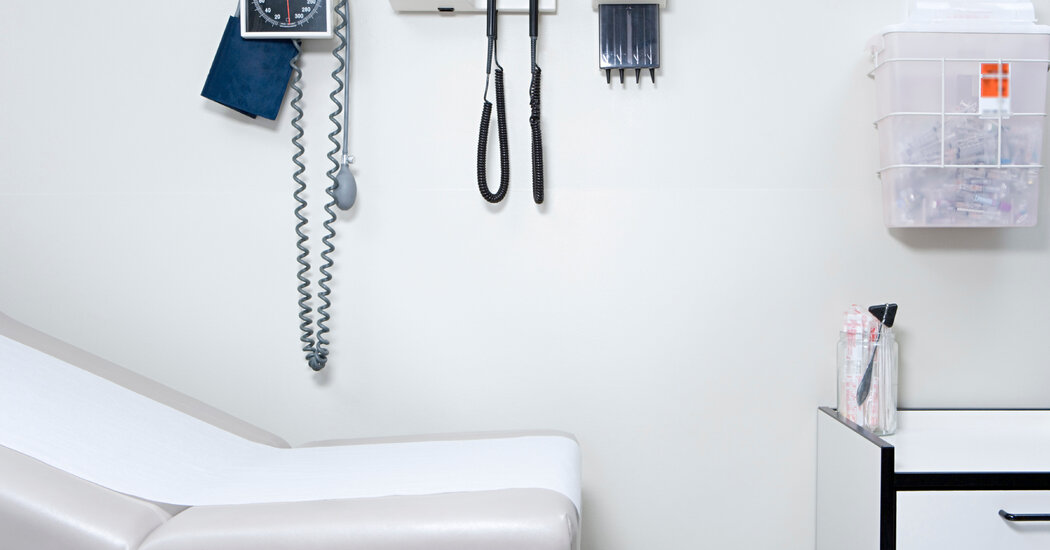
A panel of medical experts on Tuesday recommended for the first time that doctors screen all adult patients under 65 for anxiety, guidance that highlights the extraordinary stress levels that have plagued the United States since the start of the pandemic.
The advisory group, called the U.S. Preventive Services Task Force, said the guidance was intended to help prevent mental health disorders from going undetected and untreated for years or even decades. It made a similar recommendation for children and teenagers earlier this year.
The panel, appointed by an arm of the federal Department of Health and Human Services, has been preparing the guidance since before the pandemic. The recommendations come at a time of “critical need,” said Lori Pbert, a clinical psychologist and professor at the University of Massachusetts Chan Medical School, who serves on the task force. Americans have been reporting outsize anxiety levels in response to a confluence of stressors, including inflation and crime rates, fear of illness and loss of loved ones from Covid-19.
“It’s a crisis in this country,” Dr. Pbert said. “Our only hope is that our recommendations throw a spotlight on the need to create greater access to mental health care — and urgently.”
From August 2020 to February 2021, the percentage of adults with recent symptoms of an anxiety or a depressive disorder increased to 41.5 percent from 36.4 percent, according to one study cited by the task force.
The guidance was issued in draft form. The panel will finalize it in the coming months after reviewing public comments. While the panel’s recommendations are not compulsory, they heavily influence the standard of care among primary care physicians across the country.
In response to the recommendations, mental health care providers emphasized that screening programs are useful only if they lead patients to effective solutions. At a time when the country is “short on mental health resources on all levels — psychiatrists, psychologists, and therapists — that’s a real concern,” said Dr. Jeffrey Staab, a psychiatrist and chair of the department of psychiatry and psychology at Mayo Clinic in Rochester, Minn.
“We can screen lots of people, but if that’s all that happens, it’s a waste of time,” said Dr. Staab, who is not on the task force.
Psychiatrists, while pleased with the attention on mental health, also underscored that a standardized screening is only the first step toward a diagnosis, and that providers will need to guard against assuming that a positive screening result indicates a clinical disorder.
For many Americans, the screening could simply reveal a temporary period of distress and a need for extra support.
“When providers say, ‘You must have a disorder, here, take this,’ we could face an overprescribing problem,” Dr. Staab said. “But the opposite scenario is that we have lots of people suffering who shouldn’t be. Both outcomes are possible.”
Rising mental health issues are not unique to the United States. Anxiety and depression increased by 25 percent globally during the first year of the pandemic, according to the World Health Organization, and has only partially improved since.
About a quarter of men and about 40 percent of women in the United States face an anxiety disorder in their lifetimes, according to the task force, though much of the data is outdated. Women have nearly double the risk of depression compared with men, studies show, and the recommendation paid special attention to screenings for pregnant and postpartum patients.
Physicians typically use questionnaires and scales to survey for mental health disorders. According to the recommendations, positive screening results would lead to additional assessments at the provider’s discretion, depending on underlying health conditions and other life events.
Some primary care physicians expressed concern that adding an additional responsibility to their wide-ranging checklist for brief patient appointments is implausible.
Dr. Pbert of the task force said that those providers should “do what they already do on a daily basis: Juggle and prioritize.”
She also said the task force’s rigorous review of available studies revealed that people of color are often underrepresented in mental health research, which, if not addressed, could contribute to a cycle of inequity.
Mental health disparities are rampant in the United States, where Black patients are less likely to be treated for mental health conditions than are white patients, and Black and Hispanic patients are both more frequently misdiagnosed. From 2014 to 2019, the suicide rate among Black Americans increased by 30 percent, data shows.
Standardizing screening for all patients could help combat the effects of racism, implicit bias and other systemic issues in the medical field, Dr. Pbert said.
The task force panel did not extend its screening recommendations to patients 65 and older. It said there was no clear evidence regarding the effectiveness of screening tools in older adults because anxiety symptoms are similar to normal signs of aging, such as fatigue and generalized pain. The panel also said it lacked evidence on whether depression screening among adults who do not show clear signs of the disorder would ultimately prevent suicides.
The task force will accept public comments on the draft recommendation through Oct. 17.




